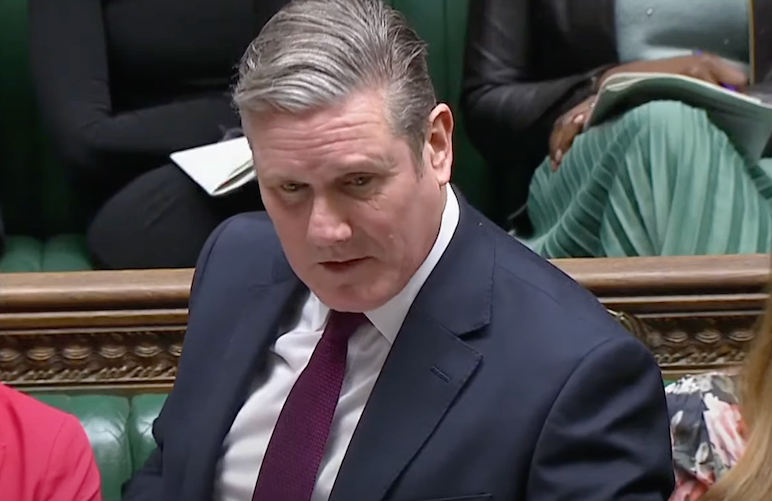Keir Starmer clearly judged that while the Post Office scandal is the hot topic today, voters will be thinking about other things come election time. And so he used the first Prime Minister’s Questions of the year to attack Rishi Sunak on the Rwanda policy, just as the Tory row over that kicks off again.
The Labour leader opened with a reasonably jocular question about ‘one ambitious Tory MP’ who had reservations about the scheme when Boris Johnson first proposed it. ‘He agreed with Labour that it wouldn’t work, that it was a waste of money, it was the latest in a long line of gimmicks. Does the Prime Minister know what happened to that MP?’ As the Commons laughed, Sunak responded that this was a ‘document that he hasn’t seen, I haven’t seen’ – he was presented with its contents on Sunday when he appeared on Laura Kuenssberg’s show. He added that what was important was that ‘you do need to stop the boats, and that’s what this government and that MP is going to deliver’.
Starmer said it was ‘hardly a surprise he wanted to scrap the scheme when he was trying to sneak in as Tory leader’ (that’s a new line from the Labour leader about Sunak’s rise to power), given the costs and the fact the boat crossings are still happening. He turned back a regular Tory attack line on his own leadership, asking the chamber ‘which member should we listen to, the one before us today, or the one who used to believe in something?’ Tory MPs made theatrical noises of disbelief at this while Sunak argued that the government was ensuring an effective deterrence to control migration, and that it was Starmer who was opposed to a proper policy.
The Labour leader clearly likes recycling the old Tory gibes about him flip-flopping, though. In his next question, he described Sunak’s trajectory thus: ‘Last year, he started the year saying he was Mr Steady. Then at his conference, he was Mr Change. Now he’s flipped back to Mr More Of The Same. It doesn’t matter how many relaunches, flip-flops he does, he will always be Mr Nobody!’
Sunak listed what the government was achieving on immigration, saying the backlog in asylum claims was going down (for an analysis of whether that is strictly true, read Ross here), that the first 50 asylum hotels had been closed, and that the numbers were down ‘by over a third last year’. He later pushed back again to point out that Starmer ‘doesn’t have a single practical idea’ because ‘he doesn’t actually care about controlling migration’. Though he continues to insist that the Rwanda deportations will be an effective deterrent, it is striking that Sunak has to emphasise all the other action in this area. Many Conservative MPs feel that it would be much easier to say the government was actually making progress on controlling illegal migration if it weren’t for the distraction of the Rwanda policy: a distraction that is going to get even noisier in the next few days.
Starmer then did what he’s been doing pretty regularly at PMQs, which is to widen out his attack on all the other things that aren’t working in Britain. He told the chamber that ‘his government appears blissfully uninterested in what’s going on outside the walls of Westminster’, and added: ‘Does he realise how ludicrous it looks when he spends his time boasting while Britain is breaking?’
This did allow Sunak to move onto what he sees as a success story that the Conservatives need to talk about more often: schools. He accused Starmer of wanting to keep schools locked down for longer and of saying one thing to his friends in the unions (reminder for those living on Mars, the teaching unions aren’t affiliated to Labour) and another thing to the British people. That’ll be the battle between the two men, then, as the election approaches. Both accusing the other of not standing for anything.







Comments